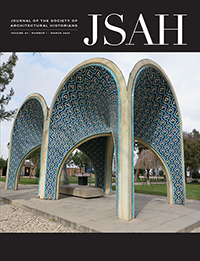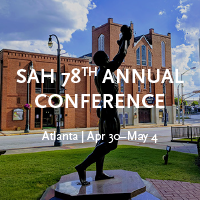PDF Version
We are writing to condemn the tragic shooting on March 16, 2021, of Atlanta-area victims, and the broader spate of racist rhetoric and violence that has terrified Asian American communities all over the US. These mass murders have hit the Atlanta Asian American community especially hard in a year that the Stop AAPI Hate organization has reported a dramatic uptick in anti-Asian incidents, some also with deadly violence.
These people were murdered in seemingly mundane strip malls in suburban Atlanta in massage parlors whose association with the objectification of Asian women has fueled stigmatizing speculation with no regard for the devastated families supported by this work. Underlying narratives of mainstream news coverage have linked xenophobic and misogynistic stereotyping to the massage parlors, which are indirectly associated with sex trafficking. Asian American women—dehumanized by racist stereotypes as submissive, passive sexual objects—are particularly targeted by sexual fetishism intersecting with gender discrimination and misogyny. The more general anti-Asian rhetoric that has proliferated during the past year as a result of fear mongering and scapegoating that blames these communities for causing the “China virus” coupled with these murders has created palpable fear of more violence that could be directed at any person of Asian descent.
At a national level, the mass shooting at a King Soopers grocery store in Boulder, Colorado, in the following week has heightened the sense that ordinary and everyday spaces are being rendered unsafe through gun violence. For a long time, Asian Americans have felt unease in overt spatial expressions of their cultural identity, resorting to blending in rather than standing out. Yet, as the recent incidents show, they are targeted and unsafe even in commonplace surroundings. Their workplaces, public spaces, city streets, and places of worship are becoming sites of violence.
People puzzling over the ferocity of recent anti-Asian incidents need only review the abundant historical evidence of spatialized racial violence inflicted upon Asian Americans. From the moment Chinese laborers appeared on the West Coast, their settlements and ‘Chinatowns’ were forcibly moved or burned down by arson, and they were often threatened, attacked and on occasion murdered. Most Asian immigrants were excluded from American citizenship and property ownership until 1952 by reason of their race. Like African Americans, they were excluded from most neighborhoods through racial covenants that presented them as undesirable neighbors, and their neighborhoods redlined.
In the face of this increase in violence, we join with the calls by the American Council of Learned Societies (ACLS) and the Asian and Pacific Islander Americans in Historic Preservation (APIAHiP) to resist racist rhetoric and physical violence. We support all the calls for advancing racial justice, and seek to raise awareness through our architectural practice, education, institutions, and history. We ask our colleagues to interrogate with a critical lens how we may create safe workplaces, homes, schools, civic places, places of worship, urban sites, regions and a nation, safe from anti-Asian hate and discrimination.
With condolences to their families, we mourn and honor the lives of the victims: Dauyou Feng, Hyun Jung Grant, Suncha Kim, Paul Andre Michels, Soon Chung Park, Xiaojie Tan, Delaina Ashley Yaun and Yong Ae Yue.
Asian Pacific Islander Americans in Historic Preservation Statement
ACLS Statement Condemning Anti-Asian Violence
Respectfully,
Gail Dubrow & Sean McPherson
Co-Chairs, SAH Asian American & Diasporic Architectural History Affiliate Group
Lynne Horiuchi & Itohan Osayimwese
Co-Chairs, SAH Minority Scholars Affiliate Group
Charles Davis, II & Maura Lucking
Co-Chairs, SAH Race and Architecture Affiliate Group
Bryan Clark Green
Chair, SAH Heritage Conservation Committee
Anna Sokolina
Chair, SAH Women in Architecture Affiliate Group
Society of Architectural Historians


